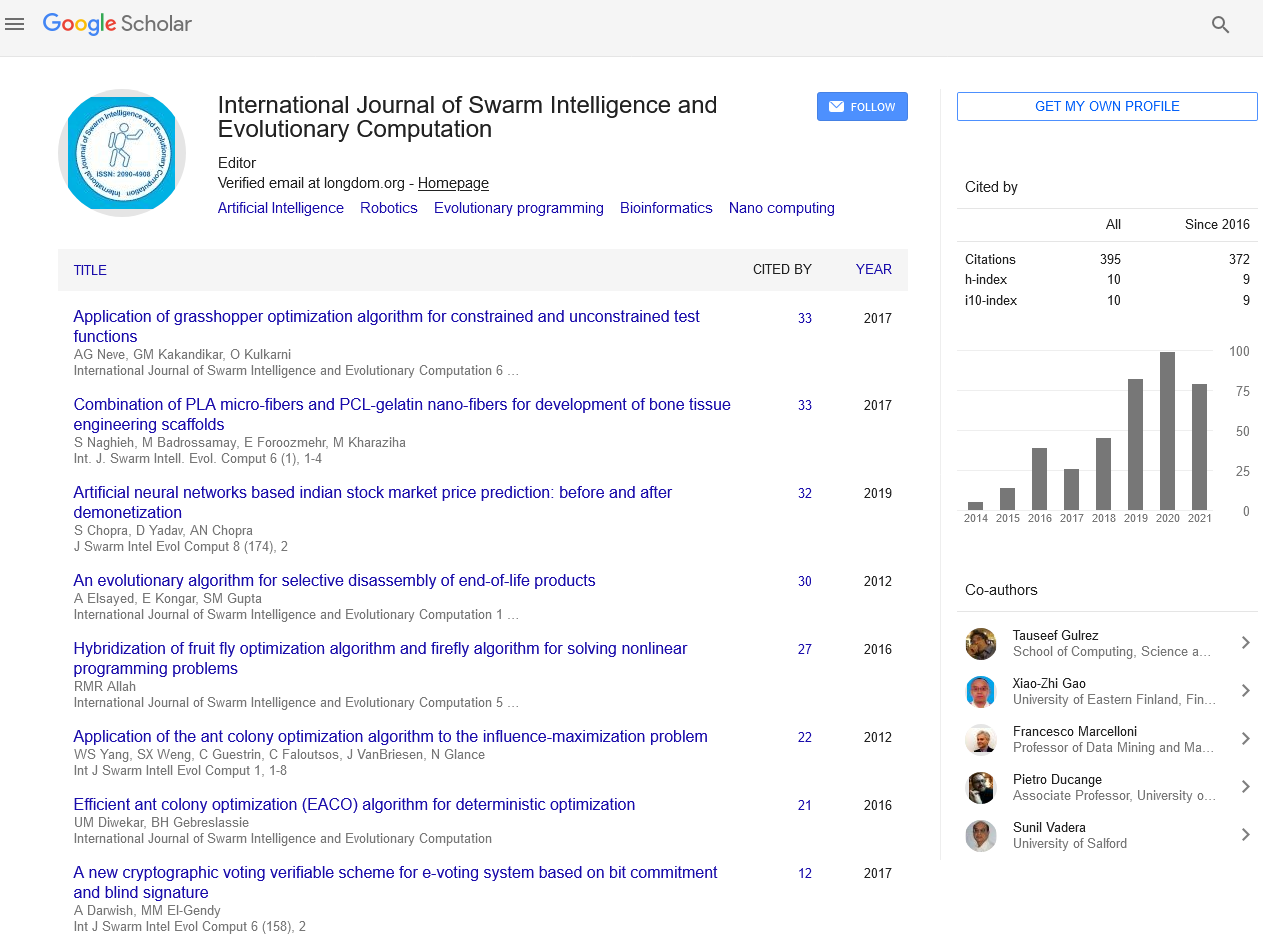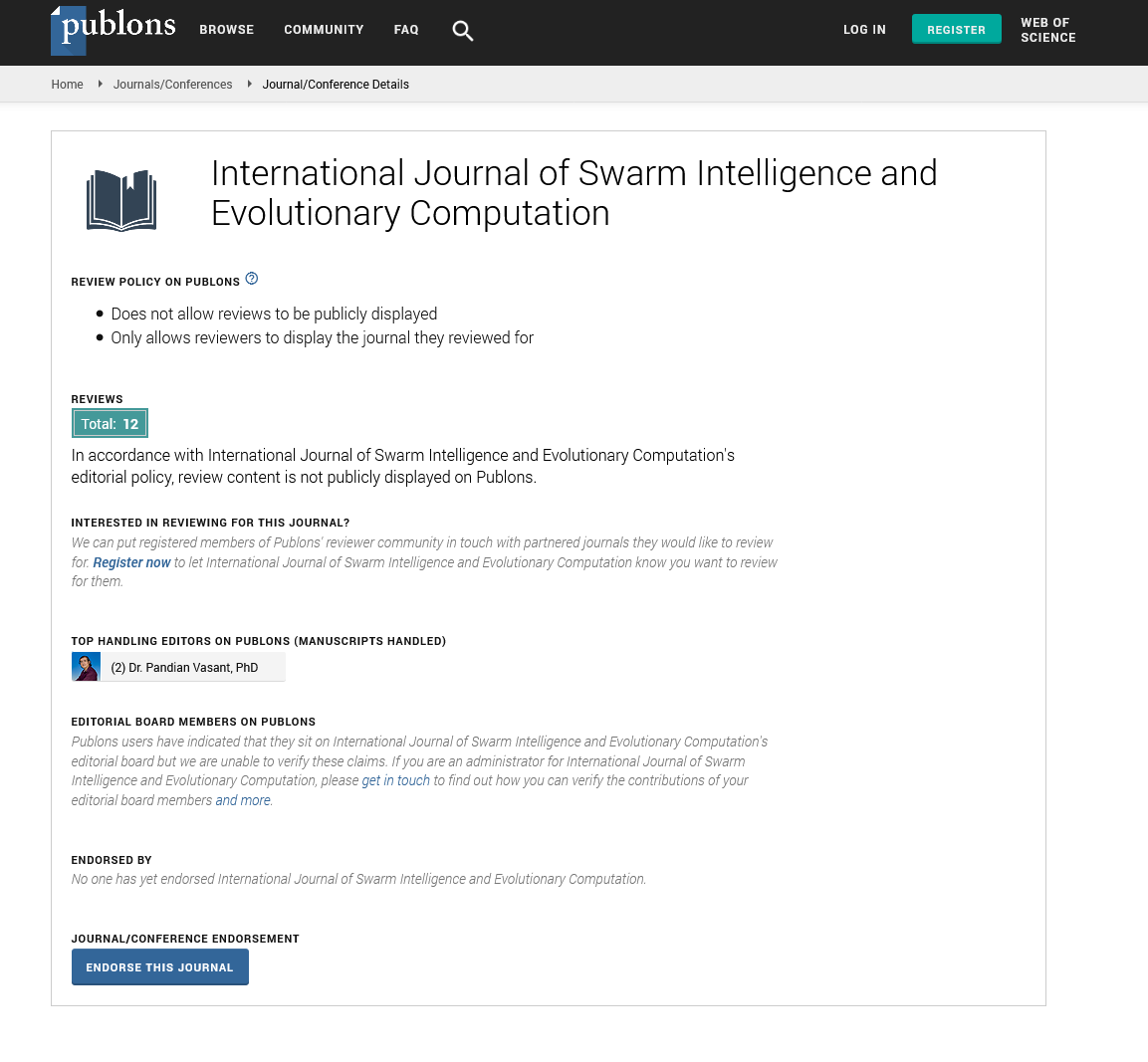Indexed In
- Genamics JournalSeek
- RefSeek
- Hamdard University
- EBSCO A-Z
- OCLC- WorldCat
- Publons
- Euro Pub
- Google Scholar
Useful Links
Share This Page
Journal Flyer

Open Access Journals
- Agri and Aquaculture
- Biochemistry
- Bioinformatics & Systems Biology
- Business & Management
- Chemistry
- Clinical Sciences
- Engineering
- Food & Nutrition
- General Science
- Genetics & Molecular Biology
- Immunology & Microbiology
- Medical Sciences
- Neuroscience & Psychology
- Nursing & Health Care
- Pharmaceutical Sciences
Perspective - (2023) Volume 12, Issue 3
Ontology Engineering: Building a Semantic Foundation for Knowledge Representation
George Andreas*Received: 21-Apr-2023, Manuscript No. SIEC-23-21831; Editor assigned: 24-Apr-2023, Pre QC No. SIEC-23-21831 (PQ); Reviewed: 10-May-2023, QC No. SIEC-23-21831; Revised: 17-May-2023, Manuscript No. SIEC-23-21831 (R); Published: 25-May-2023, DOI: 10.35248/2090-4908.23.12.319
Description
Ontology engineering plays a crucial role in knowledge representation and the organization of information in various domains. By providing a structured and formal representation of knowledge, ontologies enable machines to understand and reason about complex concepts and entities. Ontology is a formal specification of a conceptualization, representing the entities and constraints within a specific domain. It provides a shared understanding of the domain and facilitates knowledge sharing, integration, and interoperability across different systems and applications. Ontology engineering is grounded in the principles of knowledge representation, which involve capturing and organizing knowledge in a structured and machine-interpretable form. It allows for explicit representation of concepts, properties enabling efficient information retrieval and reasoning.
Applications of ontology engineering
Artificial intelligence: Ontologies are fundamental components of intelligent systems and artificial intelligence applications. They provide a structured knowledge representation that facilitates automated reasoning, inference, and intelligent decision-making processes. Ontologies are used in natural language processing, machine learning, expert systems, and other AI domains.
Knowledge management: Ontologies are extensively used in knowledge management systems to capture and organize organizational knowledge. They enable efficient knowledge sharing, retrieval, and discovery, facilitating collaboration and decision-making processes.
Semantic web technologies: Ontology engineering plays a vital role in the development of the Semantic Web, where information is structured and linked in a way that machines can understand and process. Ontologies enable data integration, interoperability, and advanced reasoning capabilities across various web-based applications and services.
Data integration and interoperability: Ontology engineering helps overcome the challenges of data integration and interoperability. By providing a shared understanding and formal representation of concepts and relationships, ontologies enable the mapping and alignment of data from different sources and domains. This allows for seamless data integration and interoperability across systems, enhancing information exchange and collaboration.
Data governance and standardization: Ontologies contribute to data governance and standardization efforts by providing a common vocabulary and conceptual framework for data representation. They enable consistent data modeling, ensure data quality and integrity, and support data sharing and exchange in standardized formats. Ontologies aid in data integration, data sharing agreements, and compliance with regulations and industry standards. The applications of ontology engineering span across various domains and disciplines, enabling efficient knowledge management, intelligent systems, semantic interoperability, and improved decision-making processes. Ontology engineering continues to evolve, addressing new challenges and enabling novel applications in emerging fields such as Internet of Things, smart cities, and big data analytics.
Challenges and future directions
Ontology reusability and interoperability: Ensuring the reusability and interoperability of ontologies across different domains and applications is a significant challenge. Developing standardized ontology design patterns, aligning with existing ontologies, and establishing best practices can help address this challenge.
Scalability and maintenance: As ontologies grow in complexity and size, scalability and maintenance become critical concerns. Techniques for modularizing ontologies, managing evolving knowledge, and dealing with ontology versioning are areas of ongoing research.
Conclusion
Ontology engineering provides a powerful framework for knowledge representation, semantic interoperability, and intelligent reasoning. By capturing domain knowledge in a structured and machine-interpretable manner, ontologies facilitate effective knowledge management, semantic web technologies, and artificial intelligence applications. As the demand for advanced knowledge representation and reasoning continues to grow, addressing challenges such as ontology reusability and scalability will shape the future of ontology engineering, enabling more intelligent and efficient information processing and decisionmaking systems.
Citation: Andreas G (2023) Ontology Engineering: Building a Semantic Foundation for Knowledge Representation. Int J Swarm Evol Comput. 12:319.
Copyright: © 2023 Andreas G. This is an open-access article distributed under the terms of the Creative Commons Attribution License, which permits unrestricted use, distribution, and reproduction in any medium, provided the original author and source are credited.


